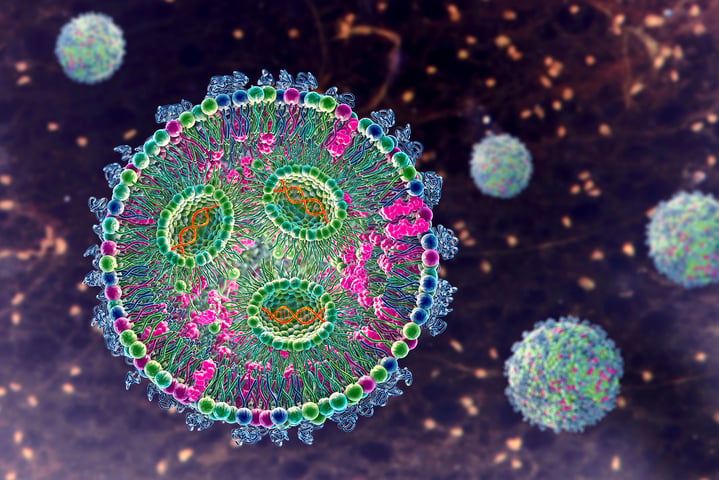
Recorded webinar
Screening of the binding affinity of serum proteins to mRNA-LNPs by QCM-D
Join us to hear from Federica Sebastini, who earned her PhD in chemistry from the University of Reading, UK, in 2014. She is currently working as a Tenure Track Assistant Professor at the Department of Pharmacy, University of Copenhagen.
The focus of Prof. Sebastiani’s research is on physico-chemical characterization of self-assembled soft matter systems, and in particular on lipid-based systems. She is interested in the relationship between the structure and function of lipid assembly for drug delivery, i.e. LNPs for mRNA delivery. In parallel, she is interested in studying these systems when interacting with proteins and/or model membranes. By understanding the relationship between structure and function of bio-colloids and biomimetic systems, she aims to control function by tuning structure.
Lipid nanoparticles (LNPs) are promising drug and gene carriers. Upon intravenous administration, LNPs experience different degrees of cellular uptake depending on their formulation. Currently, in vitro, and in vivo studies, are the gold standard for assessing the fate of nano carriers once administered, but they are time consuming and expensive.
Webinar details
-
Originally aired
April 19, 2024
-
Length
62 min
-
Presentation by
Federica Sebastiani
-
Technologies
QCM-D

In this webinar:
- Learn about a time and cost-effective method to screen a wide range of LNP formulations and how to select the most promising candidates for in vitro and in vivo studies.
- Explore two different approaches to investigate the binding affinity between LNPs and serum proteins using sensor functionalization with either protein specific antibody or PEG specific antibody.
- How sensing was conducted, using Quartz Crystal Microbalance with Dissipation (QCM-D)
- How to use this method for other surface sensing techniques such as Surface Plasmon Resonance (SPR) or ellipsometry.
.png?width=900&name=Round%20template%20(2).png)
Presentation by Federica Sebastiani
Federica Sebastiani, PhD, is a Tenure Track Assistant Professor at the Department of Pharmacy, University of Copenhagen. She is an academic professional specializing in pharmaceutical sciences, likely focusing on research and teaching in areas related to drug formulation, delivery, or biophysics.
